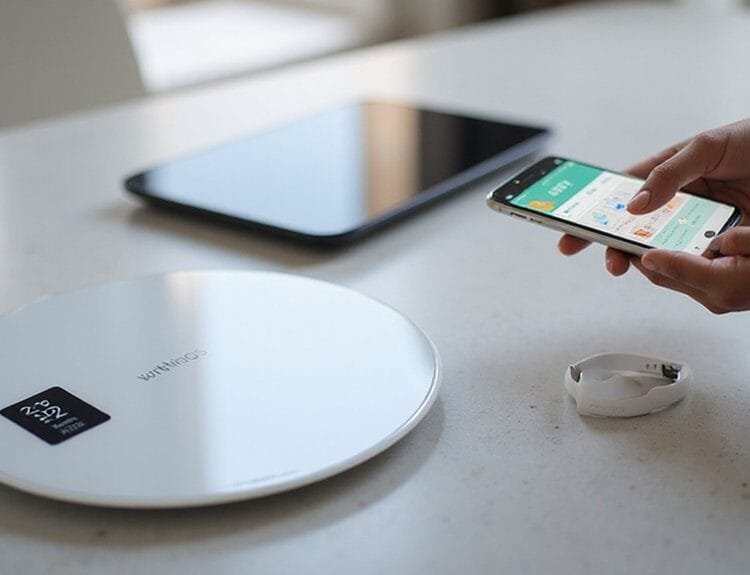If you’re comparing Epson and BenQ for gaming projectors, BenQ edges out with superior performance. You’ll find BenQ models like the X500i offer lower input lag (under 20 ms), 100% DCI-P3 color coverage, and minimal motion blur. Epson projectors, while functional, typically have higher input lag and less precise color reproduction. Your gaming experience depends on these critical metrics, and the nuances reveal a clearer competitive advantage.
Key Takeaways
- BenQ consistently outperforms Epson in gaming performance, with significantly lower input lag (under 20 ms) and faster pixel response times.
- Color accuracy gives BenQ an edge, offering 100% DCI-P3 color coverage compared to Epson’s 91.90%, which enhances visual immersion and gaming experience.
- Motion blur is substantially less pronounced in BenQ projectors, with <0.1ms input lag at 4K 60Hz, providing smoother and more responsive gameplay.
- While Epson projectors like the LS11000 are more expensive ($3999), BenQ models such as the X500i offer superior gaming features at a lower price point ($1699).
- Different projection technologies (BenQ’s DLP vs. Epson’s LCD) result in notable performance differences, with BenQ demonstrating more consistent and responsive gaming capabilities.
Lag Time Performance Breakdown


While lag time can make or break a gaming experience, projector performance in this critical area varies greatly across different models. You’ll want to pay close attention to input lag times when selecting a gaming projector. The BenQ W7000, for instance, delivers a competitive 34-35 ms lag time, suitable for serious gaming competitions and action-packed genres. In contrast, the Epson Home Cinema 5010‘s 83 ms lag markedly underperforms, potentially frustrating hardcore gamers who demand precision.
Modern gaming projectors are pushing technological boundaries, with some models like the Nexigo Aurora Pro achieving remarkable 1 ms input lag at 4K 60Hz. For competitive gaming, you’ll ideally seek projectors with lag times below 20 ms, though 30-50 ms remains acceptable for most gaming scenarios. Your choice directly impacts gaming performance and overall experience.
Color Accuracy and Image Quality
Beyond lag time’s performance metrics, a gaming projector’s color accuracy and image quality stand as defining characteristics that can elevate or diminish the visual immersion. BenQ’s X500i demonstrates superior color performance, achieving 100% DCI-P3 color coverage and providing vibrant, precise colors essential for gaming-focused experiences. Compared to Epson’s LS11000, which covers 91.90% of DCI-P3, the X500i offers more accurate color reproduction and better detail retention in high-contrast scenes. Color calibration tools reveal BenQ’s exceptional performance in dark environments, where subtle visual nuances can greatly impact gameplay. The X500i’s ability to maintain color temperature and accuracy across different lighting conditions sets it apart, ensuring gamers experience rich, true-to-source visual representations that enhance overall gaming immersion and visual fidelity.
Gaming Experience and Motion Blur


As gamers seek immersive visual experiences, motion blur emerges as a critical performance metric that can dramatically impact gameplay responsiveness and visual clarity. When comparing projectors, you’ll find significant variations in motion performance:
- BENQ and ViewSonic projectors demonstrate exceptional motion handling, maintaining less than 0.1ms input lag at 4K 60Hz, which translates to minimal visual disruption during fast-paced gaming scenarios.
- The Nexigo Aurora Pro offers around 1ms input lag, positioning it as a competitive option for gamers prioritizing responsive displays.
- Epson LS11000 reveals notable limitations, showing motion blur at merely 240 pixels per second, which can compromise your gaming experience.
Your choice of projector directly influences gaming performance, with motion blur and input lag serving as decisive factors in determining visual precision and competitive edge.
Projector Technology Comparison
Since the gaming projector market continues to evolve rapidly, understanding the nuanced differences between projection technologies becomes essential for discerning consumers. BenQ and Epson represent distinct technological approaches, with DLP and LCD technologies offering unique performance characteristics. Critically, input lag remains a pivotal factor in gaming projector selection.
| Technology | BenQ (DLP) | Epson (LCD) | Performance Impact |
|---|---|---|---|
| Input Lag | <20 ms | >20 ms | Gaming Responsiveness |
| Motion Blur | Low | Higher | Visual Clarity |
| Color Accuracy | Superior | Standard | Image Quality |
| Pixel Change | Faster | Slower | Gaming Experience |
While BenQ’s DLP technology enables quicker pixel changes and minimal noise, Epson’s LCD projectors offer robust brightness. Your choice ultimately depends on prioritizing response time versus overall image quality in your gaming setup.
Price and Value Considerations


How do you maximize your gaming projector investment while balancing performance and budget? Price points play an essential role in selecting the right gaming projector. Consider these key factors:
- BenQ X500i offers exceptional value at $1699, delivering low input lag and superior color accuracy for serious gamers
- Epson LS11000 provides premium performance at $3999, targeting users requiring high brightness in larger rooms
- ViewSonic models like X2-4K and LX700-4K present affordable alternatives around $1600, ensuring competitive gaming capabilities
When evaluating projectors, prioritize performance metrics alongside cost. The Nexigo Aurora Pro at $2699 demonstrates that higher prices can yield advanced features like superior ambient light performance. Ultimately, your choice depends on matching specific gaming requirements with budget constraints, ensuring ideal value without compromising visual quality or gaming experience.
Frequently Asked Questions
What Is the Best Projector for Gaming?
You’ll want a projector with low input lag, high gaming resolution, and excellent brightness. The BenQ X500i stands out, offering 34-35 ms response time and superior color accuracy, making it ideal for immersive, competitive gaming experiences.
Is Benq Projector Good for Gaming?
You’ll find BenQ projectors excel in gaming with their low 34-35 ms input lag, true 4K resolution, and vibrant color performance. They’re technically superior for competitive gaming, offering sharp images and minimal display delay in dark room setups.
Does Epson Make the Best Projectors?
While Epson’s technology offers impressive features like high brightness and color accuracy, their performance falls short for serious gamers due to higher input lag. You’ll find Epson projectors excel in home theater settings but aren’t ideal for competitive gaming.
Is the HT2060 Better Than the Epson?
You’ll discover the HT2060’s superior gaming prowess through its razor-sharp 4K resolution, lightning-fast 16.67ms input lag, and vibrant 100% DCI-P3 color coverage, outperforming many Epson models in critical gaming performance metrics.
Is It Possible to Use a Baby Monitor for Gaming Setup, Similar to Projectors?
Using a baby monitor for your gaming setup is an innovative idea, much like how projectors are utilized for immersive experiences. For parents gaming while keeping an eye on the little ones, a well-reviewed device could enhance the experience. Check out the best baby monitor comparison for twins to find the right fit!
Conclusion
When choosing between Epson and BenQ for gaming, you’ll find each projector offers unique strengths. Can you imagine transforming your gaming space with the right visual technology? Ultimately, your decision hinges on balancing low input lag, color precision, and budget constraints. BenQ’s specialized gaming models might edge out Epson’s more versatile options, but personal preference and specific gaming requirements will dictate the ideal choice for your setup.





